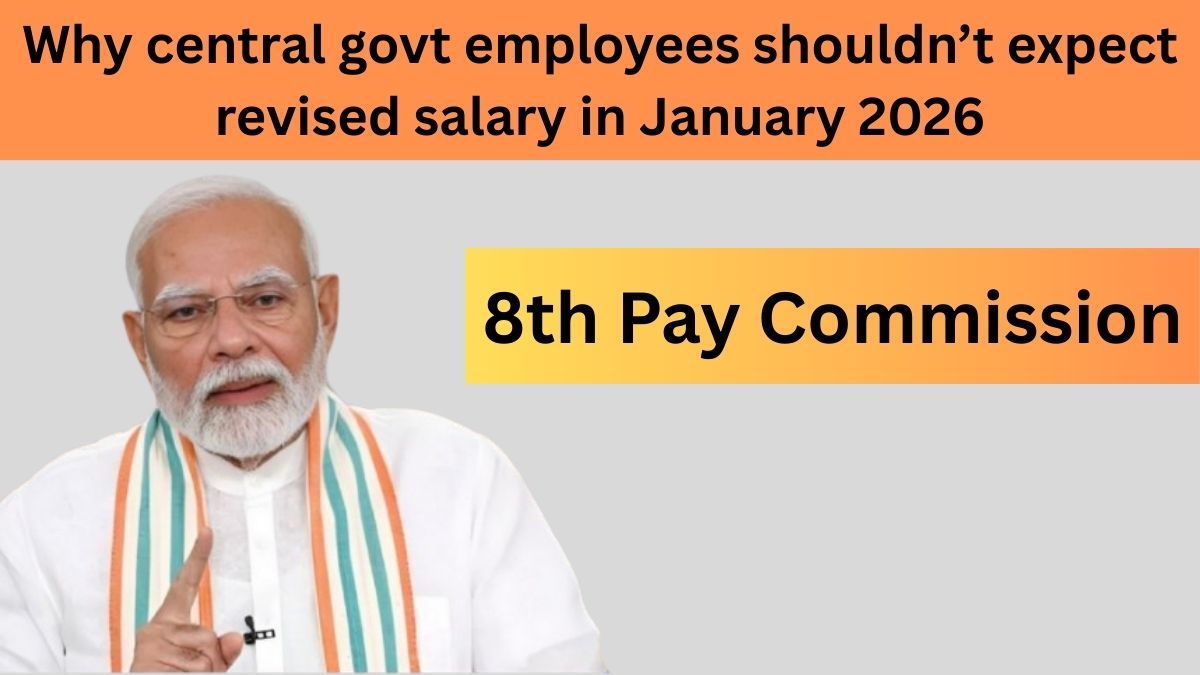Central government employees across India have been anticipating the implementation of the 8th Central Pay Commission (CPC), expecting that revised salary structures might be introduced starting January 1, 2026. However, the current pace of administrative developments suggests that these hopes may not materialize as soon as expected. Although the Commission was announced in January 2025, several crucial steps are yet to be completed, casting doubt on the timeline for implementation.
Announcement Made, But Key Appointments Still Pending
The official announcement to constitute the 8th CPC was made in January 2025, prior to the Union Budget. While this initial step raised expectations, the formal constitution of the Commission has not yet been finalized. Key roles—including the chairman, two additional members, and a senior bureaucrat at the secretary level—are still vacant.
These appointments are fundamental for the Commission to begin functioning. Until the leadership team is in place, the Commission cannot begin consultations, gather data, or draft recommendations. As a result, the actual work of the Commission has not yet begun, pushing the entire process back.
Delay in Defining the Commission’s Scope
Another major hurdle is the absence of finalized Terms of Reference (ToR). The ToR defines what the Commission is responsible for evaluating and recommending. Typically, it includes areas such as salary structures, pension systems, grade pay adjustments, and allowances. Without a formal ToR, the Commission cannot legally or effectively begin its work.
Finance Minister Nirmala Sitharaman, in a recent parliamentary response, confirmed the intent to establish the 8th CPC. However, she also acknowledged that the ToR and timelines for submission are still under review. This further highlights that the process is in its preliminary stages and far from being ready for implementation.
A Historically Slow Process
Pay Commissions in India traditionally follow a long and methodical path. The 7th Pay Commission, for example, was set up in 2014 and submitted its report in 2015. Implementation began in mid-2016. This timeline—spanning roughly 18 to 24 months from announcement to execution—is a pattern repeated by previous commissions.
Given that the 8th CPC was only announced in January 2025, and its operational structure has not been finalized, expecting a salary hike by January 2026 appears overly optimistic. Even under ideal conditions, finalizing recommendations, obtaining approvals, and executing revised pay structures would likely extend beyond the initial one-year window.
Budget Allocation Signals Further Delay
Another strong indicator that salary revisions are not imminent is the absence of any financial provision for revised pay in the Union Budget for FY2025–26. Typically, if a new pay structure is scheduled for rollout, funds must be allocated in advance. The lack of such provisions confirms that no major salary changes are expected in that fiscal year.
Expenditure Secretary Manoj Govil has also publicly commented on the issue, stating that given the delay in forming the Commission and the time it will take to draft recommendations, no financial impact from the 8th CPC is anticipated during FY26. His statement aligns with past experiences, reinforcing that salary revisions may only be feasible by late 2026 or beyond.
Extensive Consultations Will Take Time
Formulating pay commission recommendations is not a straightforward bureaucratic task. It involves broad-based consultations with multiple stakeholders, including employee unions, ministry representatives (such as Defence, Home Affairs, and Personnel), and pensioners’ associations.
These consultations are essential to ensure fairness, transparency, and financial sustainability. However, they also extend the timeline considerably. Each round of discussions involves documentation, feedback review, and often multiple stages of negotiation before arriving at consensus-based proposals.
The 10-Year Cycle and Current Overlap with 7th CPC
Traditionally, India’s central pay commissions are formed roughly once every ten years. The 7th Pay Commission came into effect in 2016 and is expected to remain valid through 2026. Ideally, the 8th CPC would begin producing results just as the previous structure ends. However, with delays in formation, scope definition, and consultations, this seamless transition now seems increasingly unlikely.
What It Means for Government Employees and Retirees
The anticipated delay is more than just a bureaucratic issue—it affects millions of employees and pensioners who were hoping for a pay revision to adjust to inflation and rising living costs. With no immediate changes on the horizon, financial planning for many may need to be reconsidered.
In the interim, government staff may continue to rely on periodic Dearness Allowance (DA) increases to partially offset the impact of inflation. However, these adjustments are modest compared to the structural revisions that a new pay commission would bring.
Frequently Asked Questions
Q1. Has the 8th Pay Commission started its work?
Not yet. The announcement was made, but the key appointments and Terms of Reference have not been finalized.
Q2. Will there be a salary revision in January 2026?
Highly unlikely. The current pace of progress and lack of budget allocation suggest a delay in implementation.
Q3. What exactly are the Terms of Reference (ToR)?
The ToR define what the Commission will evaluate, including salaries, pensions, allowances, and other benefits.
Q4. How long does a Pay Commission typically take to implement its recommendations?
Usually, it takes 12–18 months from the time the Commission is fully set up and begins its work.
Q5. What can employees expect in the meantime?
Employees will likely continue receiving regular DA increases until the revised pay structure is finalized and approved.
Click here to know more.
Kishan is a knowledgeable writer specializing in agriculture and the latest government job recruitments, delivering clear and insightful content to inform and empower readers.

